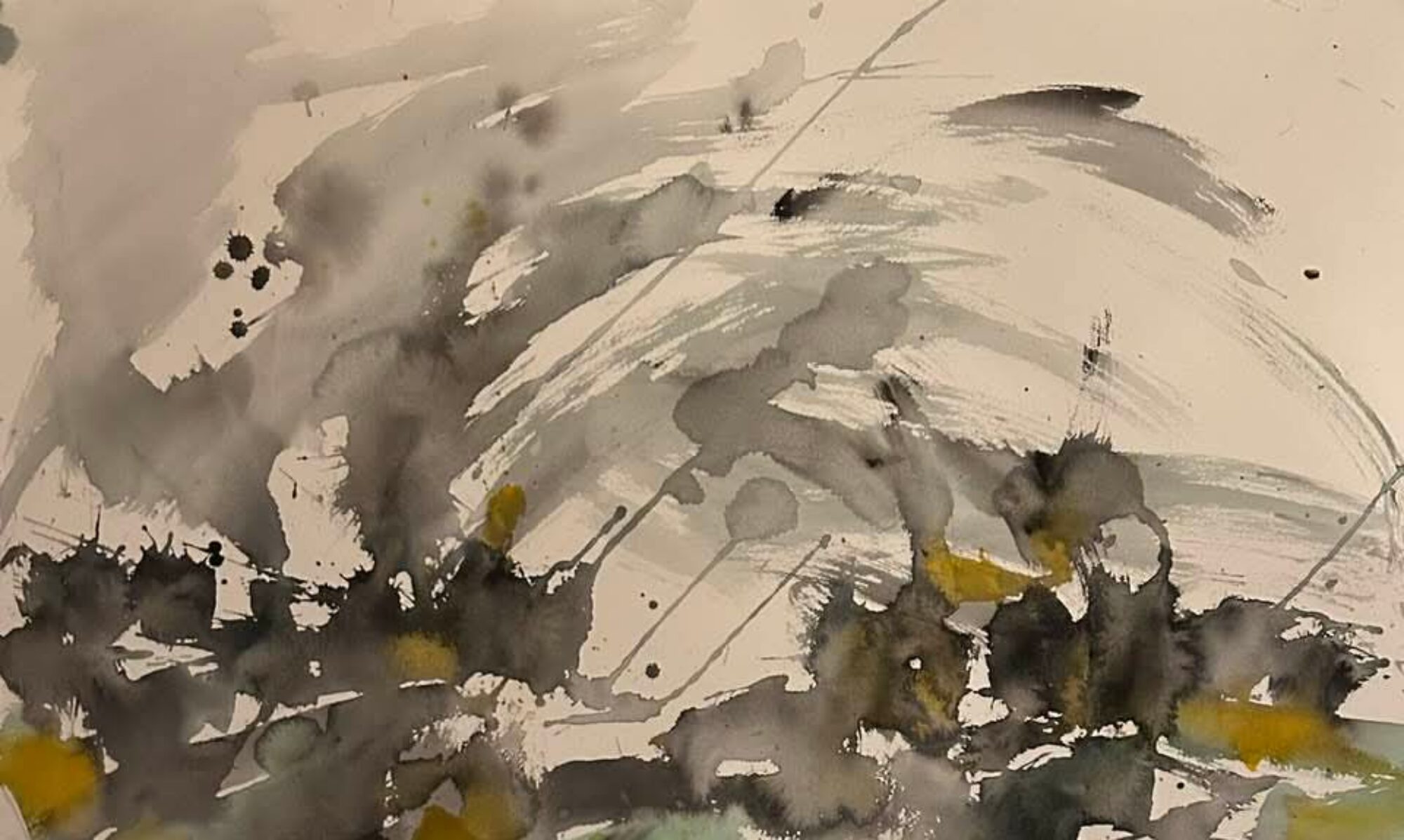Emmanuel Witzthum, “Book of Fragments”
Album: The Book of Dusts (Facture, 2019)
Like “minimalism” itself, the term “holy minimalism” is sometimes used as a pejorative — but you won’t find it used that way here. Composer/violist Emmanuel Witzthum’s Book of Dusts is inspired by “old notebooks, antiquarian editions, calligraphic writing, and piles of books dressed in spiderwebs of dust,” but it could just as easily have been inspired by gazing up at the arches of a cathedral or walking through a cemetery.
Clocking in at just 1:56, “Book of Fragments” is a meditation — perhaps on loss: the loss of time, of memory, of loved ones. Though the music emanates from a single viola, its melodic line feels more like a call and response between two instruments, as mournful, resonant legato notes ring out individually and occasionally meet each other in harmony.
Music like “Book of Fragments” is a gift of our postmodern era, in which all periods of music are freely available for composers to draw on. Witzthum is looking back hundreds of years, reaching for the spiritual resonance of plainchant in terms of acoustics, while drawing more on the Baroque era harmonically. And yet, “Book of Fragments” is fully of its time.
“Book of Fragments” — and the album from which it comes — is meditative, contemporary classical music that speaks deeply. The piece is brief — just a fragment of music, really — but like minimalism itself, it says a lot with few words.
The Spot on the Hill blog is about discovery and exploration — discovering new music and exploring the origins and key elements of music I already love. In Now Listening, I explore music that has captured my imagination, both past and present.
